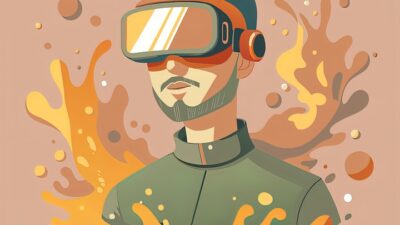In an era where technology permeates every facet of our lives, the personal computer (PC) has transcended its traditional role as a gaming device or work tool. Instead, it has become a cornerstone of modern education, offering a multitude of functionalities that cater to diverse learning needs. From enabling remote learning to fostering collaborative projects, PCs are proving to be invaluable assets in the educational landscape.
The Shift to Digital Learning
The global pandemic accelerated the shift toward digital learning, propelling educational institutions to adopt remote teaching methods swiftly. PCs emerged as the go-to devices for teachers and students alike, facilitating classes through platforms like Zoom, Google Classroom, and Microsoft Teams. This transition highlighted not only the need for reliable hardware but also the significance of software that supports interactive learning.
Accessibility and Inclusivity
One of the most compelling advantages of using PCs in education is their ability to promote accessibility and inclusivity. Students with disabilities can leverage specialized software and tools, such as screen readers and voice recognition programs, enabling them to engage in learning activities more effectively. Furthermore, the vast array of educational resources available online ensures that students from various backgrounds can access information and learning materials.
Enhancing Collaborative Learning
Collaboration is a critical skill in today’s interconnected world, and PCs facilitate this through cloud-based applications. Platforms like Google Workspace and Microsoft 365 allow students to work together in real-time, regardless of their physical location. This not only fosters teamwork but also teaches students vital digital communication skills that are essential in modern workplaces.
Creative and Critical Thinking
Beyond just textbooks and lectures, PCs offer a plethora of creative tools that engage students in new ways. Programs such as design software, video editing tools, and coding platforms encourage students to express their creativity and develop critical thinking skills. For instance, students can create presentations using software like Prezi, engage in programming through platforms like Scratch, or even collaborate on digital art projects. These experiences help cultivate problem-solving abilities while making learning interactive and enjoyable.
Personalized Learning Experiences
Every student has a unique learning style, and PCs enable personalized learning experiences that can cater to individual needs. With adaptive learning software, educators can tailor lessons to match a student’s pace, ensuring that no one is left behind. Moreover, the wealth of online resources—from educational videos to interactive simulations—allows students to explore topics that fascinate them, fostering a love for learning and self-directed study.
The Role of Online Courses and MOOCs
The proliferation of online courses and Massive Open Online Courses (MOOCs) has made education more accessible than ever. Platforms like Coursera, edX, and Khan Academy offer courses from esteemed institutions, allowing students to learn at their own pace and explore subjects outside their current curriculum. This broadening of educational horizons empowers learners to acquire new skills and knowledge that may enhance their career prospects.
Preparing for the Future
Incorporating PCs into education not only equips students with knowledge but also prepares them for a technology-driven future. Familiarity with various software applications, digital communication tools, and the internet is crucial for success in many careers. By integrating technology into their learning process, students become adept at maneuvering through the digital landscape, giving them a competitive edge in the job market.
Conclusion
The versatility of PCs in modern education is undeniable. As we continue to navigate the complexities of the 21st century, the role of technology in learning will only grow. PCs are no longer just devices for gaming or productivity—they are powerful tools that foster collaboration, creativity, and personalized learning experiences. By embracing the full potential of PCs, educators can inspire a new generation of learners, equipped not just with knowledge, but with the skills and adaptability needed to thrive in a rapidly evolving world. The future of education is here, and it’s powered by technology.



